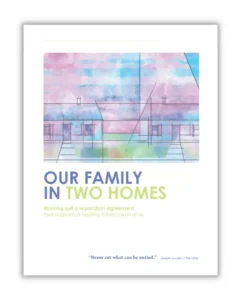In a world where conflicts are as common as they are inevitable, mediation emerges as a beacon of hope. Unlike traditional litigation, which often exacerbates disputes and entrenches adversarial positions, mediation offers a collaborative path to resolution. This blog piece delves into the essence of mediation, its benefits, and why it might be the ideal choice for resolving conflicts.
What is Mediation?
Mediation is a structured, yet flexible process in which a neutral third party, known as a mediator, facilitates communication between disputing parties. The mediator’s role is not to impose a solution but to help the parties explore their needs and interests, ultimately guiding them toward a mutually agreeable resolution.
The Mediation Process

- Initial Individual Meetings: Mediation typically begins with me meeting individually with each party to explain the process, explore the decisions that need to be made, what is most important to each party, and why. This step is crucial for establishing trust, ensuring that the parties understand the mediation’s purpose and procedure, and ensuring I understand the needs, interest, values, and concerns of each party prior to meeting jointly.
- Joint Sessions: In these sessions, the couple come together to discuss their issues openly. I help manage the dialogue, ensuring that each party has the opportunity to speak and be heard.
- Private Caucuses: Sometimes, I will meet with each party individually during the joint sessions to explore their perspectives and concerns in a confidential setting. This can help uncover underlying issues and generate ideas for resolution.
- Negotiation: Through facilitated discussions and negotiations, I assist the parties in identifying common ground and crafting solutions that address the interests of all involved.
- Agreement: Once a resolution is reached, I can draft a formal agreement that outlines the terms of the settlement. This document can be legally binding, depending on the jurisdiction and the nature of the dispute.
Why Choose Mediation?
- Cost-Effective: Mediation is often less expensive than going to court. The process typically takes less time, which translates into lower legal fees and less disruption to the parties’ lives.
- Confidential: Unlike court proceedings, which are public records, mediation sessions are private. This confidentiality can be crucial for parties who want to protect their reputations and keep sensitive information out of the public eye.
- Control and Flexibility: In mediation, the parties have greater control over the outcome. Unlike a judge or jury, who imposes a decision, the parties work together to create a solution that works for everyone involved.
- Preservation of Relationships: Mediation is particularly useful in disputes where maintaining an ongoing relationship is important, such as in family, workplace, or business conflicts. The collaborative nature of mediation helps to preserve relationships and foster mutual respect.
- High Success Rate: Research shows that mediation has a high success rate in resolving disputes. The voluntary nature of the process means that agreements reached are more likely to be adhered to, as they are crafted by the parties themselves.
When Mediation Might Not Be Suitable
While mediation offers many advantages, it’s not always the right choice. Mediation may not be appropriate in situations where there is a significant power imbalance between the parties, when one party is unwilling to negotiate in good faith, or in cases involving criminal matters. In such situations, other forms of dispute resolution or legal proceedings might be necessary.
The Role of the Mediator
My effectiveness as a mediator, hinges on several key qualities: neutrality, empathy, patience, curiosity and strong communication skills. I must remain impartial, build rapport with both parties, and guide the discussion in a way that fosters understanding and cooperation. My role is to help the parties hear and understand each other so that the parties can make the best decisions about their future.
Conclusion
Mediation represents a powerful alternative to traditional litigation, offering a more collaborative, cost-effective, and respectful way to resolve disputes. By focusing on dialogue, understanding, and mutual agreement, mediation not only addresses the immediate conflict but also promotes long-term relationships and solutions. Whether you’re facing a personal, family, or business dispute, considering mediation could be your pathway to a more harmonious resolution.
For more information, feel free to reach out to me and my team at (801)464-4004.